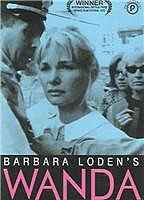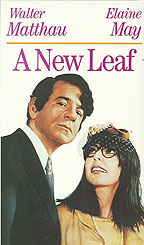Top Five 1970s Films Directed by Women
Published on December 5th, 2011 in: Dancing Ourselves Into The Tomb, Documentaries, Feminism, Issues, Listicles, Movies, Staff Picks, Top Five Lists |By Chelsea Spear
If your knowledge of the American New Wave begins and ends with the studio films of the era and Peter Biskind’s Easy Riders, Raging Bulls, you may regard 1970s Hollywood as a roiling cauldron of testosterone. The pictures of the day may have featured more complex female protagonists, and may have ushered in an era of unconventional actresses like Shelley Duvall, Ellyn Burstyn, and Barbara Streisand. However, the exploits of Altman, Bogdanovich, Hopper, and Scorsese and their second-string peers left little room for emerging distaff talent.
As any good artist does, however, the female directors of the 1970s found a way around the system and were able to make feature films. Many of these saw distribution at mainstream houses, while others languished, undiscovered until recently. Here are five features helmed by intrepid lady lensers during the Easy Riders/Raging Bulls era.

1. Wanda (1970; directed by Barbara Loden)
By the time she’d directed her only feature, Barbara Loden had left her working-class family in North Carolina to become an actress in New York. She worked as a pinup girl and appeared in plays with Ernie Kovacs before landing her big break, playing Maggie in the original Broadway production of Arthur Miller’s After the Fall. During the production, Loden fell in love with her director—an up-and-comer by the name of Elia Kazan—and appeared in his films Wild River and Splendor in the Grass.
In the late 1960s, Loden read a newspaper article about a woman who thanked a judge for sentencing her to life in prison. Wondering what kind of person would do such a thing, and thinking of her life in the Rust Belt, she wrote the script for Wanda. After several years, she was able to raise enough money for a quick 16mm shoot, with Connecticut and Pennsylvania playing the role of her North Carolina home.
Unlike Kazan’s theatrical pot-boilers, Loden’s film feels like real life. The feature follows the titular character (played by Loden) as she deserts her family, leaves home, and falls in with a petty thief (Michael Higgins) as he plans to rob a bank. However, the film eschews plot for a character study of a female drifter. Loden and her collaborator Nick Proferes use documentary techniques such as long takes, minimal editing, and location shooting that gives the film a quiet authenticity.
At the center of the picture is Loden’s heartbreaking, unassuming performance as the pre-feminist protagonist. The role of the blank-faced, guileless Wanda is one of a woman who’s barely aware of life outside the confines of home and family. While feminists rejected the film because Wanda was not a “strong woman character,” she was something more: she was real.
Because of the slow-moving, character-driven plot, Wanda didn’t have much of a theatrical run outside of New York City. Loden and Proferes had written several scripts that never got produced, so Loden turned her attention to directing plays, teaching acting, and shooting educational films for the Learning Corporation of America. In the late 1970s she began pre-production on a cinematic adaptation of Kate Chopin’s The Awakening, but was unable to realize this film as she died in September of 1980.
While the film was barely a cult success on its initial stateside release, it met with some success in Europe. Loden was frequently invited to screen the film at women’s film festivals in France and Germany. Over a quarter-century after the film’s release, renowned French actress Isabelle Huppert financed a remastering and a DVD release—Wanda‘s first official home entertainment availability.

2. A New Leaf (1970; directed by Elaine May)
Like Barbara Loden, Elaine May had released a feature film in 1970, which she directed and starred in. A New Leaf was a bracing black comedy in which a destitute middle-aged playboy (Walter Matthau) marries a daffy botanist (May) with the intention to kill her . . . only to watch his plan go up in smoke as he falls in love with her. At first, the film seems very much of its time—the fast pace and wacky characters seem influenced by early Woody Allen and by Peter Bogdanovich’s screwball comedy What’s Up, Doc? However, May’s film features much meaner characters who operate at higher stakes than do Allen’s and Bogdanovich’s protagonists. (Henrietta Lowell’s fate at the end of the film offers a real-life consequence you wouldn’t necessarily see in, say, Bananas.) Her stylized blocking, staging, and use of color and location give the film an otherworldly look that would influence contemporary directors like Wes Anderson and Todd Solondz.
May and Loden were in similar positions at the dawn of the 1970s. Both women were rising stars in a new cultural landscape, though May—who had received acclaim for her comedy routines with Mike Nichols—was a bit more recognizable to the general public. Due to Nichols’ runaway success with The Graduate, May might have seemed like a natural to take a seat in the director’s chair.
While Loden made Wanda on her own terms, May landed what looked like a cushy deal with Paramount Pictures. Her film received a wider release than Loden’s, and May received nominations from the Golden Globes and the WGAs. Unlike Loden, however, May had little autonomy over the film’s final cut. Paramount president Robert Evans cut the three-hour feature she had turned in down to 90 minutes, and the film has only sporadically been broadcast or available for home viewing. May followed up A New Leaf with two other character-driven 1970s features—the Neil Simon adaptation The Heartbreak Kid and the drama Mikey and Nicky—before releasing a rather notorious flop, the misunderstood and underrated Ishtar. After its abject failure at the box office, May has turned away from directing feature films to working on Broadway as a playwright. One of her recent short plays is currently running on Broadway as part of the anthology play Relatively Speaking.
Pages: 1 2
One Response to “Top Five 1970s Films Directed by Women”
March 7th, 2012 at 4:48 pm
Nice job on these (almost lost) classics. I was only familiar with 2 of the films (Harlan County and the Elaine May film) but Chelsea piqued my interest in the others as well. Good work!
Ken
Time limit is exhausted. Please reload the CAPTCHA.